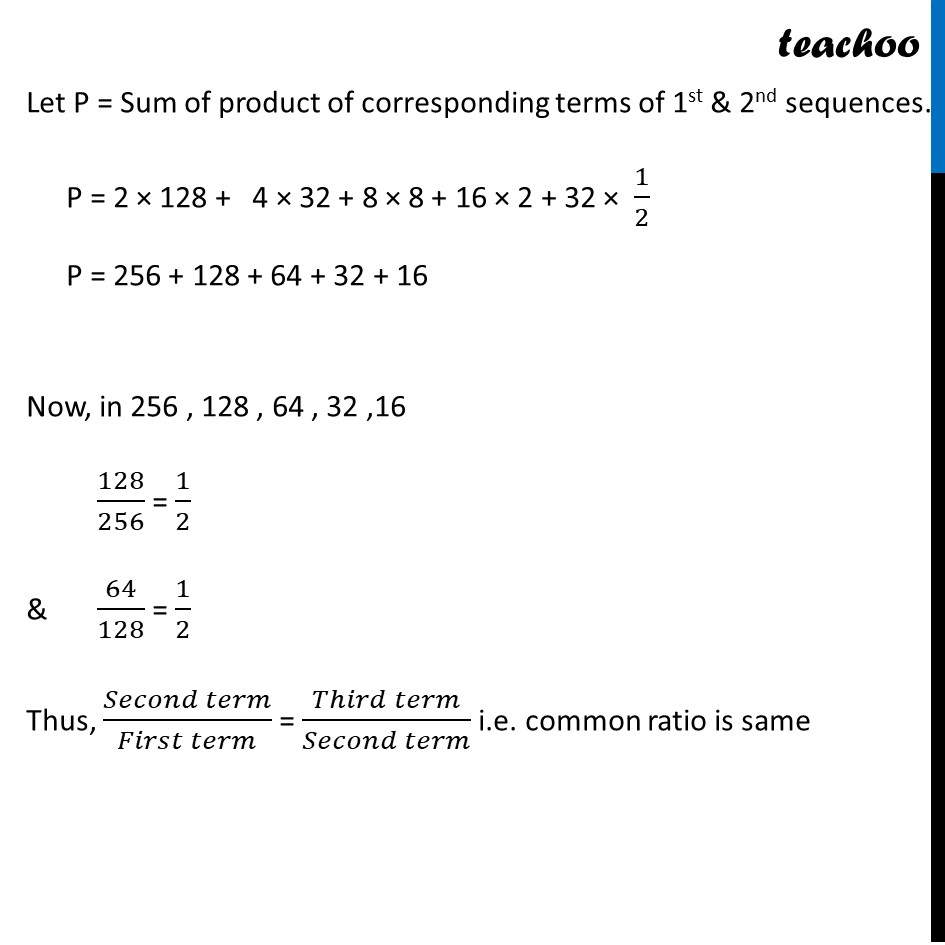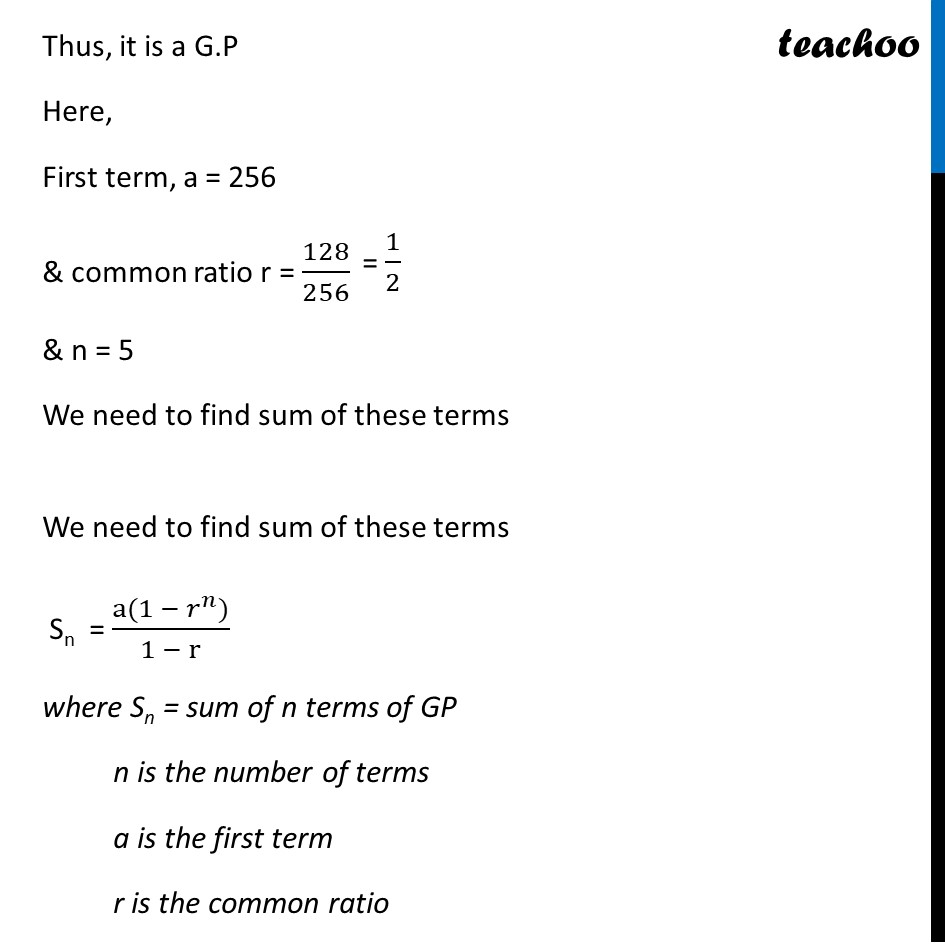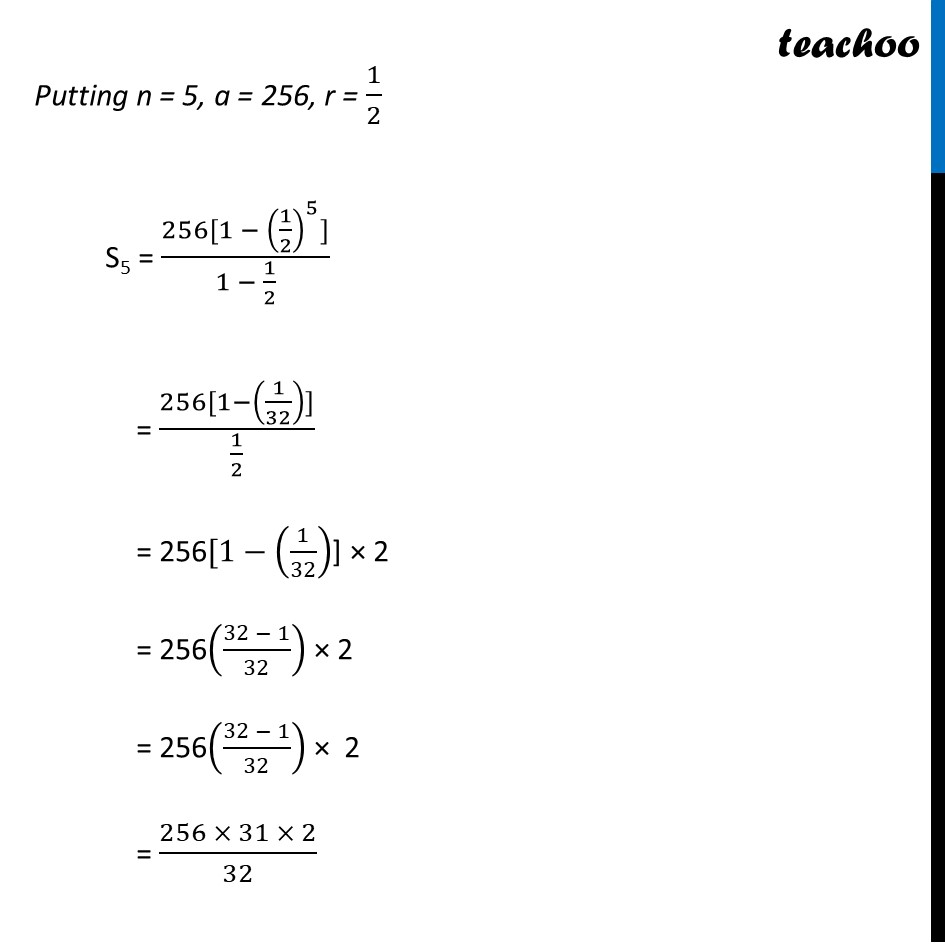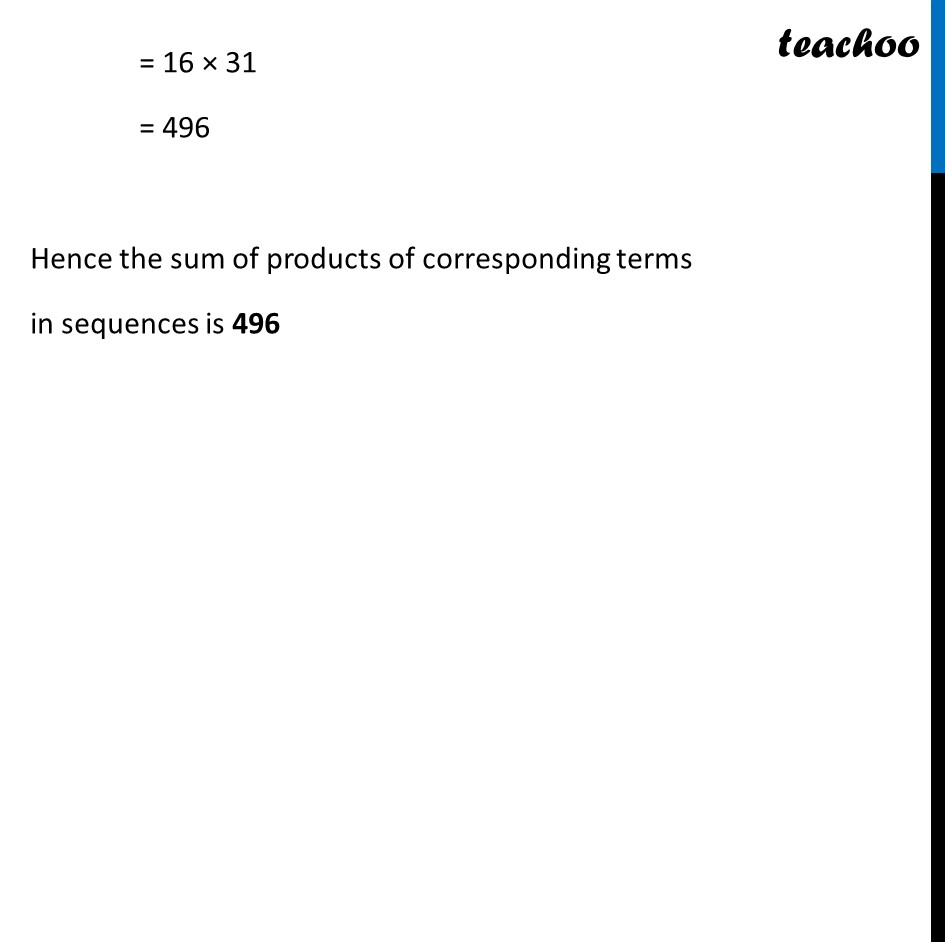




Geometric Progression(GP): Formulae based
Geometric Progression(GP): Formulae based
Last updated at December 16, 2024 by Teachoo





Transcript
Ex 8.2, 19 Find the sum of the products of the corresponding terms of the sequences 2, 4, 8, 16, 32 and 128, 32, 8, 2, 1/2 1st sequence is 2, 4, 8, 16, 32 2nd sequence is 128, 32, 8, 2, 1/2 Let P = Sum of product of corresponding terms of 1st & 2nd sequences. P = 2 128 + 4 32 + 8 8 + 16 2 + 32 1/2 P = 256 + 128 + 64 + 32 + 16 P = 256 + 128 + 64 + 32 + 16 Now, in 256 , 128 , 64 , 32 ,16 128/256 = 1/2 & 64/128 = 1/2 Thus, ( )/( ) = ( )/( ) i.e. common ratio is same Thus, it is a G.P Here, First term, a = 256 & common ratio r = 128/256 & n = 5 We need to find sum of these terms We need to find sum of these terms Sn = (a(1 ^ ))/(1 r) where Sn = sum of n terms of GP n is the number of terms a is the first term r is the common ratio Putting n = 5 , a = 256 , r = 1/2 S5 = (256[1 (1/2)^5])/(1 1/2) = (256[1 (1/32)])/(1/2) = 256[1 (1/32)] 2 = 256((32 1)/32) 2 = 256((32 1)/32) 2 = (256 31 2)/32 = 16 31 = 496 Hence the sum of products of corresponding terms in sequences is 496